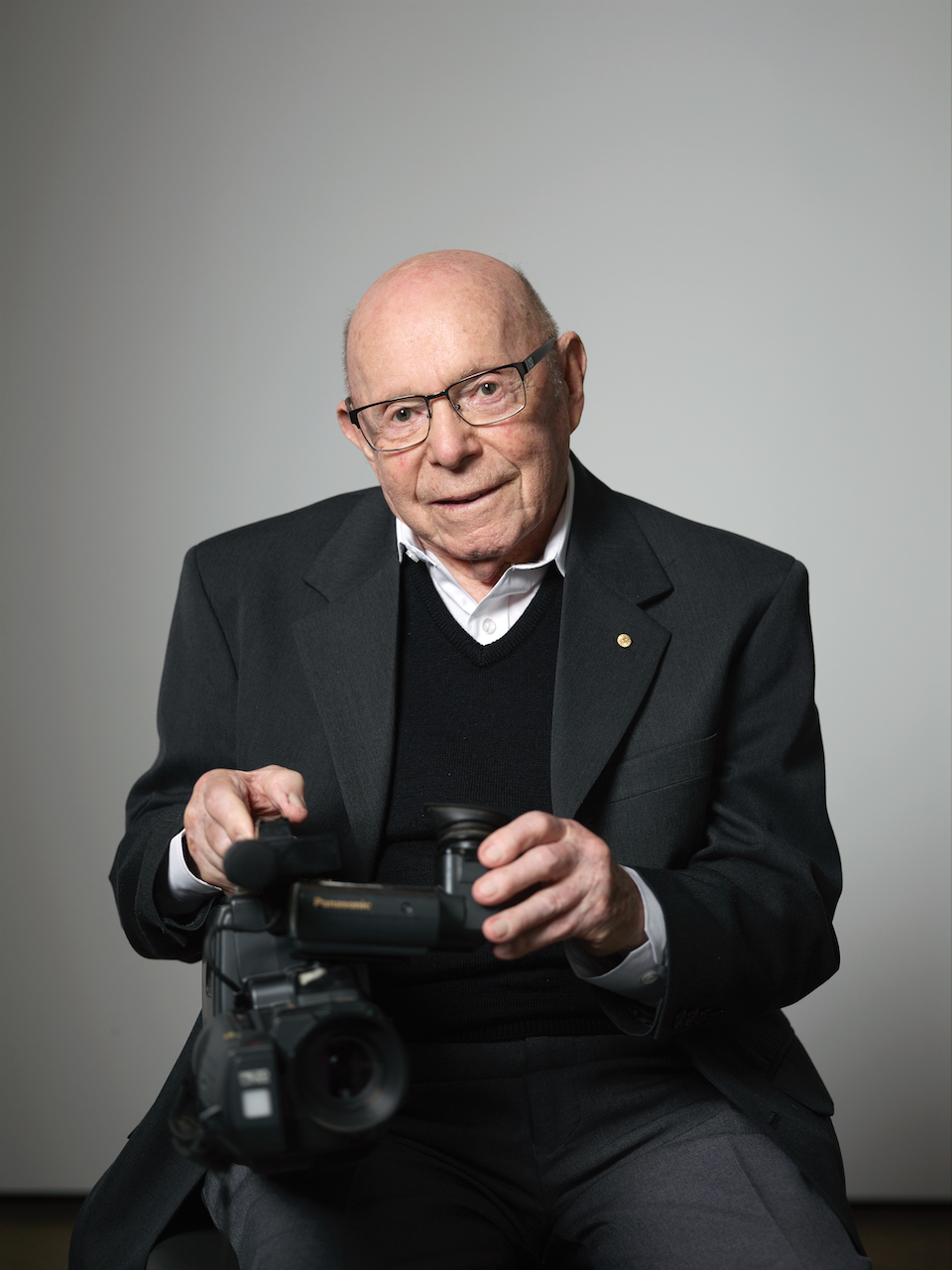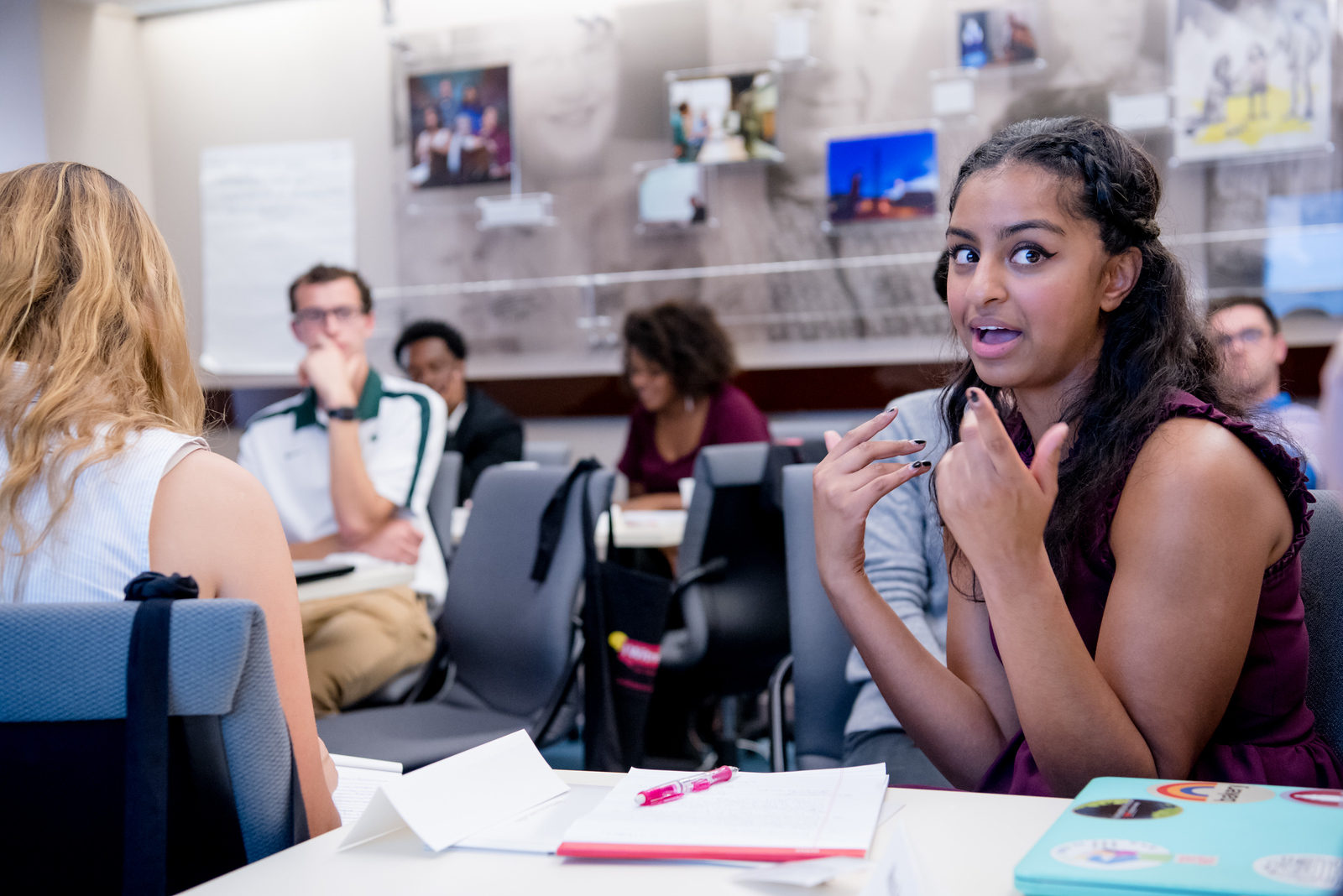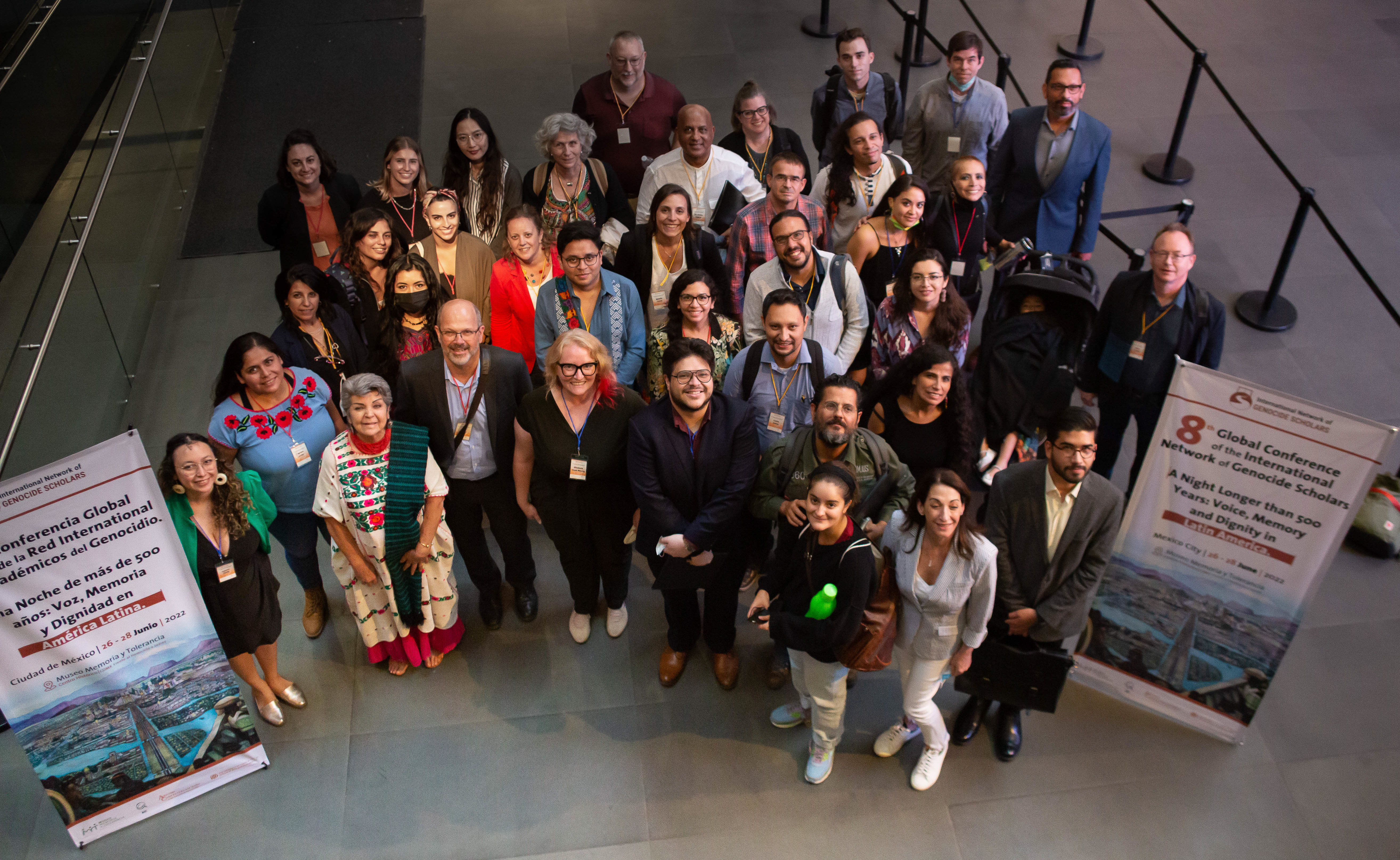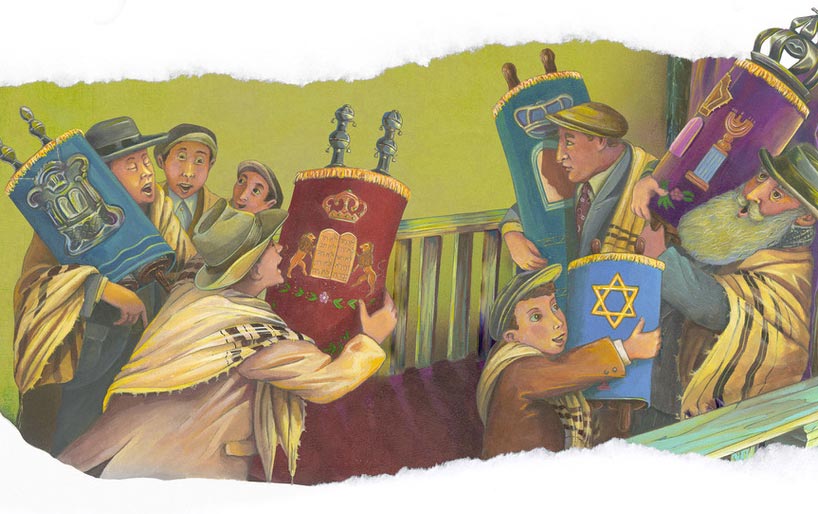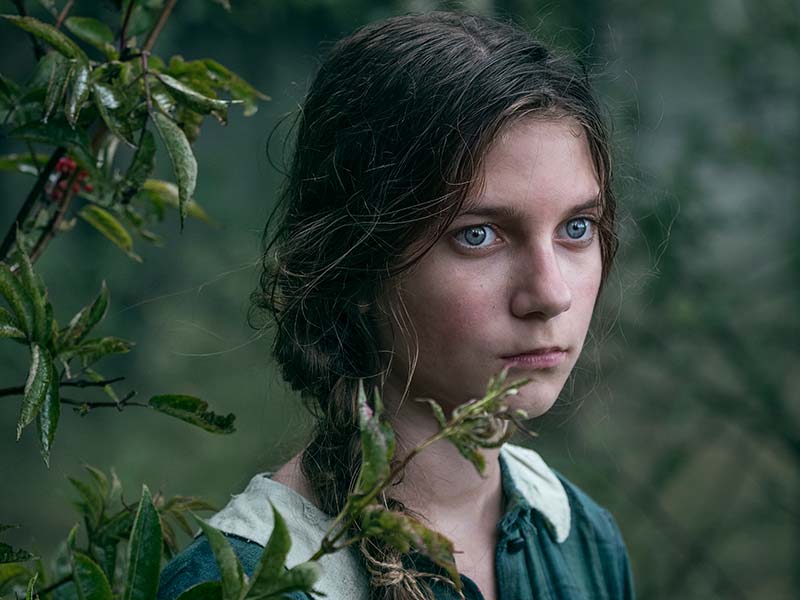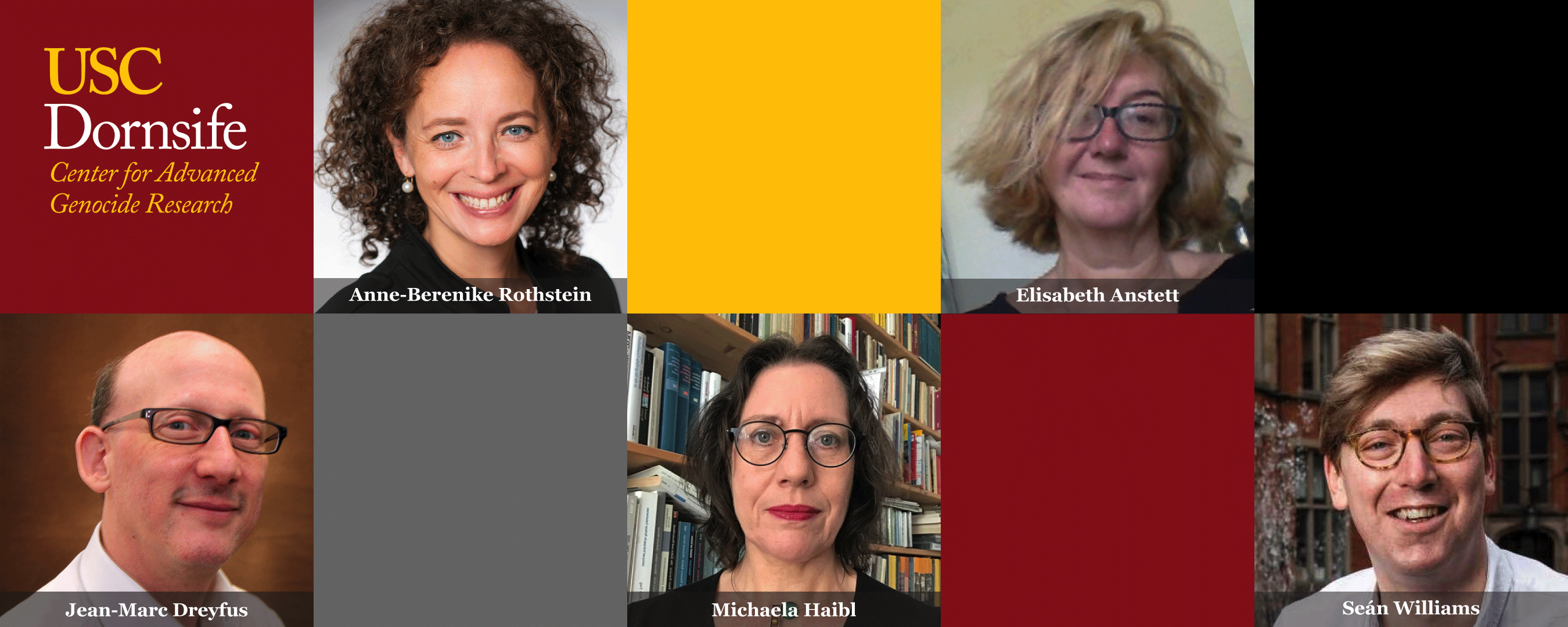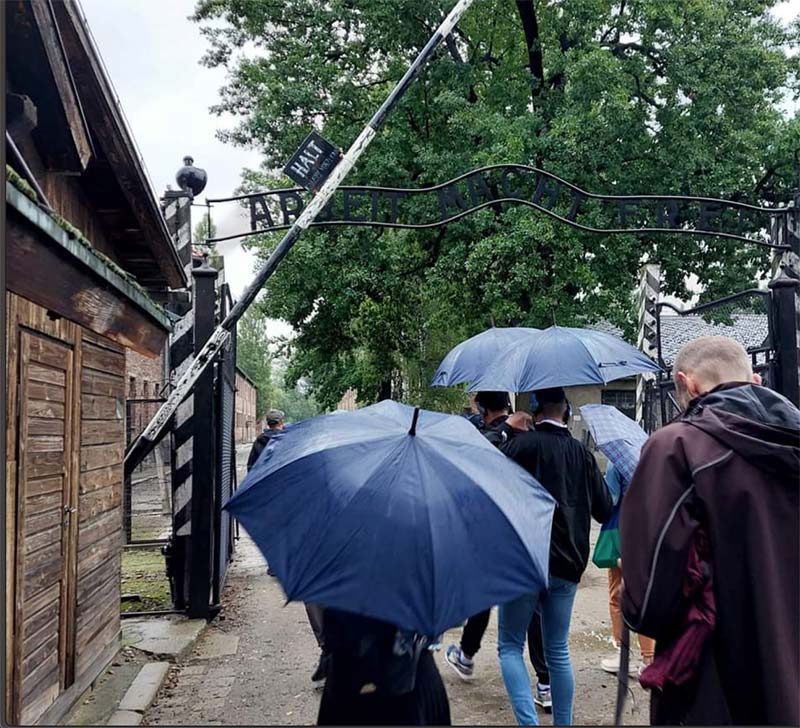USC Shoah Foundation mourns the passing of our friend Phillip Maisel, who died in Melbourne, Australia on August 22 just days after celebrating his 100th birthday.
Born in Vilnus (now Lithuania) in 1922, Maisel lived through forced labor camps in Estonia, Germany and Poland before emigrating to Australia and going on to record more than 1,500 testimonies of his fellow Holocaust survivors.
He called each recorded testimony “a miracle” and thereby earned the nickname “the keeper of miracles.” His memoir, published last year, was called The Keeper of Miracles.
USC Shoah Foundation is accepting applications for USC student leaders to take part in the upcoming Stronger Than Hate Student Leadership Summit.
Triggered by the deadly white nationalist rally of August 2017 in Charlottesville, VA, USC Shoah Foundation’s Stronger Than Hate initiative draws on the power of eyewitness testimony to help students and the general public recognize and counter antisemitism, racism, xenophobia and other forms of hatred.
Inside a Warsaw light stage surrounded by nine cameras, prominent historian and journalist Marian Turski in late June completed the first ever Polish-language Dimensions in Testimony (DiT) interview.
Conducted by USC Shoah Foundation and the Museum of the History of Polish Jews in Warsaw (POLIN), Turski’s interview was a truly international collaboration involving 15 team members from Belgium, Germany, Hungary, Poland, the U.K and the U.S.
USC Shoah Foundation today launches its 500th IWitness activity with release of In Lisa's Footsteps, a primary level IWalk based on Mona Golabek’s acclaimed The Children of Willesden Lane books.
In Lisa's Footsteps tells the story of Golabek’s mother, Lisa Jura, a young Holocaust survivor who in 1938 escaped from Vienna to London on the Kindertransport.
USC Shoah Foundation today presents the first of two events in Aspen, Colorado hosted by Melinda Goldrich, a prominent member of the Aspen philanthropic community who serves on USC Shoah Foundation’s Board of Councilors’ Executive Committee.
When Zuzanna Surowy needed to make herself cry as the lead actress in the Holocaust-era feature film My Name Is Sara, she followed the advice of her co-star to “put a demon inside of her” – to imagine something so tragic it would bring tears to her eyes.
It was much harder for Surowy, then 15, to follow the second half of that directive: to leave the demon on the set.
Each year, the USC Dornsife Center for Advanced Genocide Research hosts a team of scholars from different universities, different countries, and different academic disciplines for one week so that they can develop and discuss a collaborative, innovative, and interdisciplinary research project in the fi
August 2 was Roma Holocaust Memorial Day, the anniversary of the day in 1944 that nearly 3,000 Roma and Sinti women, men and children in Auschwitz-Birkenau’s Zigeunerlager (then known as the “Gypsy family camp”) were killed in the concentration camp’s gas chambers.
